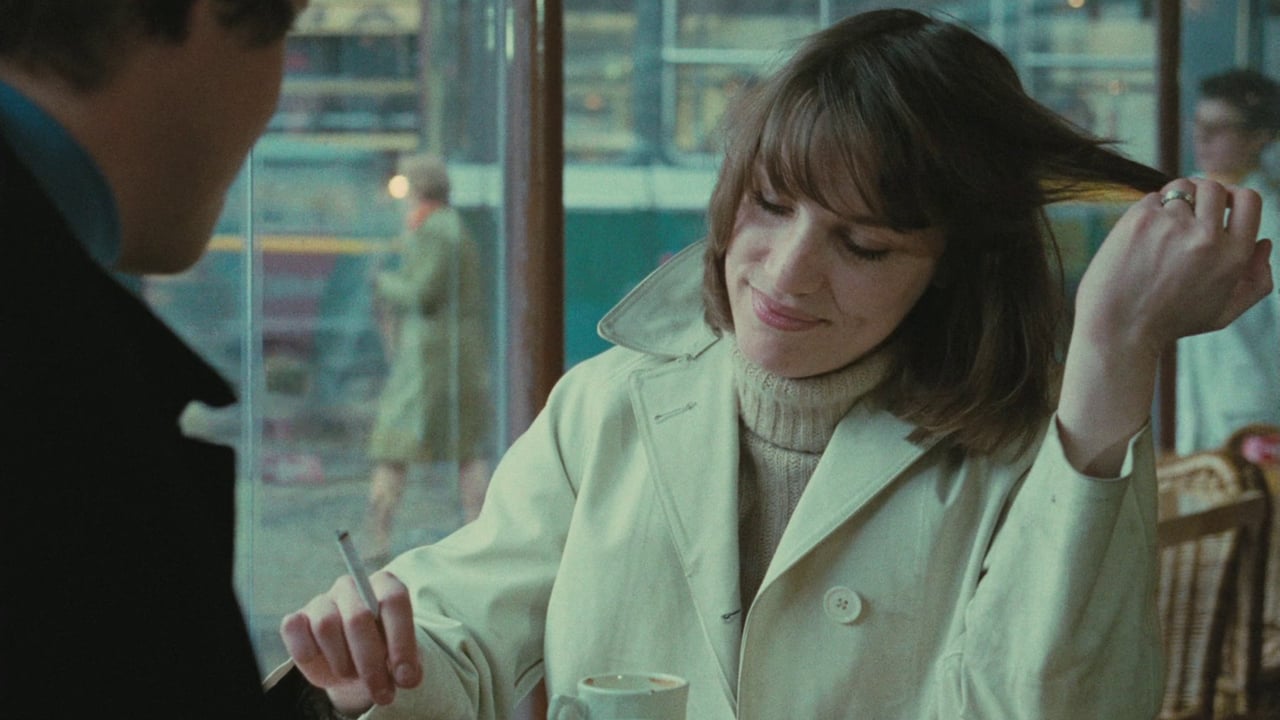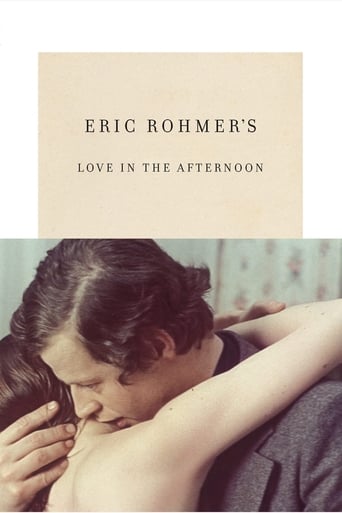

"Chloe in the Afternoon" is the sixth and final work in Eric Rohmer's "Six Moral Tales" film series. While the film's story is quite simple (a married, bourgeois man encounters a woman named Chloe who he hasn't seen in years, and begins to have some sort of a love affair with her), the film's characters are not!All of the "Six Moral Tales" provide the viewer with a cast of excellent and memorable characters. Even if these characters aren't always the most likable (just look at the film "La collectionneuse"), they are always very interesting to watch. I believe that the characters in "Chloe in the Afternoon" may be the greatest characters in the "Six Moral Tales" series. Especially the character of Chloe, a very smart and likable character who offers a lot of the film's greatest and most interesting dialogue (great dialogue is another feature that is all over this film series).Another thing that I found highly impressive about the way her character was written was how she is given a clear back story, but, instead of her back story being forcefully told to the audience in detail all at once it is simply glanced over. It is perhaps the least forced back story given to a character in any other film that I've seen.The film also turns out to be the most emotional of the "Six Moral Tales", with a truly compelling ending sequence. You can tell that director Eric Rohmer's films really began to mature since the earliest of the "Moral Tales", the 1962 short film "The Bakery Girl of Monceau".While it isn't the best of the "Six Moral Tales", and it was kind of slow at times, it is a perfectly fitting ending to one of the greatest of all film series!
... View MoreThis is not a film made in a traditional fashion; it shows that men may have some thoughts even at 50s. If you are working in areas where you have to treat public, certainly you will find ladies (or men, vice versa for women) whom you may like certainly, and attraction sometimes is fatal for certain families. Here there is no violence just the desire of a single woman to be with a married man and the way the latter reacts and finishes this relationship together with the attitude of his wife. She may seem passive, but is not, she suspected a lot until the man declares love again for her wife.
... View MoreTFO, a French-language network, has been showing the Contes moraux for the last few weeks, and the strengths and weaknesses of Rohmer's approach are easy to see. When he has fine, committed actors like Francoise Fabian and Jean-Louis Trintignant in Ma nuit chez Maud, he can create a flow and vibrancy in the story-telling that make us forget the didacticism of the script (who cares about Jansenism and Blaise Pascal, anyway?). Where he fails is in not being able to create three-dimensional characters, or not being able to coax a good performance from an actor. The glaring example of this is Brialy in Le genou de Claire who, wearing a thick beard, seems to sleep-walk through his part: his erotic obsession with a girl's lissome kneecap never comes to life. In the film in question today, Bernard Verley has a bland, pudding-like face that hardly provokes any interest in the viewer. How can such a pallid bourgeois be appealing to a bohemian girl like her?Francoise Verley as the wife has all the best moments; certainly the final scene is more interesting than what went before. She is not a beautiful woman, but her quiet strength and natural acting style are very convincing. Zouzou does not have the underlying restless energy and fierce sexuality you would expect in a girl who drifts from man to man, and her acting skills are minimal. All in all, a good film when concentrating on the family dynamics, but those scenes at the office between Verley and Zouzou are often tiresome.
... View MoreAfter watching "Claire's knee" which I personally adore, I was very impatient to discover another Eric Rohmer film. "Chloe in the afternoon" didn't disappoint me. As a matter of fact, I was captivated by the way E.R. puts his characters in interaction. It's unique to see how the scenes are put together and how E.R. makes you live the characters. I was really touched by this "moral tale".
... View More